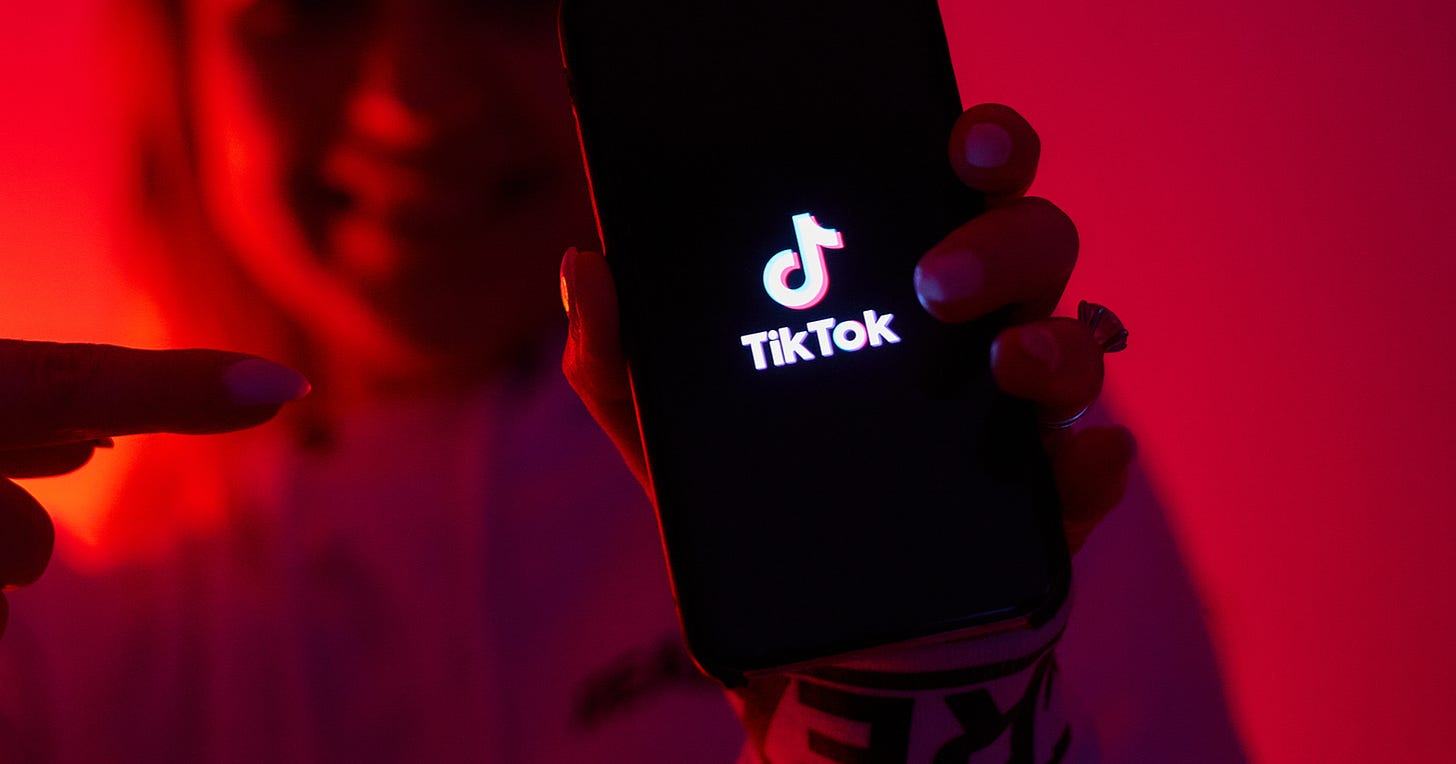TikTok Supremacy
In today's newsletter we see how TikTok is closing in on the world’s biggest social networks on popularity and influence.
Hello and Welcome to
Rise & Shine☀ - Sunday Edition,
Every Sunday, an email will arrive in your inbox detailing a specific topic to help you understand it better.
Let’s get started
Good morning Reader,
In September 2016 an app called A.me was launched in China. Built in a mere 200 days, it was rebranded to Douyin just three months after its launch.
Within a year it had 100 million users and was clocking more than a billion views a day.
The company that built it quickly decided to release an international version, which it did in 2017.
Five years later, this app is rapidly closing in on the world’s biggest social networks on popularity and influence, having already surpassed them in terms of controversy.
We’re talking, of course, about TikTok.
Originally launched as a short-form video sharing platform for lip-syncing and dancing videos, TikTok has grown into a full-fledged video service. A whole 12 years younger than YouTube, it surpassed the granddaddy of video streaming on screen time in both the US and UK last year.
ByteDance’s TikTok got a foothold overseas with its $1 billion acquisition of Musical.ly in November 2017. This instantly gave it 80 million users, mostly in the US, which it brought to its own platform.
By 2019 it was the world’s most downloaded app, a feat it repeated in 2020 and 2021. Astonishingly, it was the seventh-most downloaded app of the 2010s though it was around for only two years and three months of that decade.
TikTok, like any large social network, has had its share of controversies.
The Indian government banned it along with 58 other apps with Chinese links, including WeChat, UC Browser and PUBG, on June 29, 2020. The Ministry of Electronics and Information Technology said the apps were "prejudicial to sovereignty and integrity of India, defence of India, security of state and public order."
When it was banned, TikTok had 190 million users in India, making it the app’s second largest market behind China at the time.
The ban was made permanent in January 2021 and the following month TikTok said it would be forced to lay off over 2,000 employees in India.
Despite being banned in a country of more than a billion people and becoming a geopolitical pawn twice over, TikTok remains one of the world's fastest growing apps, rapidly closing in on social media giants Instagram, WhatsApp, YouTube and Facebook in terms of users.
It had 1.2 billion monthly active users in Q4 2021 and is expected to hit 1.8 billion by the end of 2022.
In the US, TikTok has been installed 321.6 million times, and generated $694.3 million in consumer spending, which may translate to about $208.3 million in fees for Apple’s and Google’s app stores, according to SensorTower.
The app took just over five years to hit a billion users, despite being confined to China for the first year. It took Facebook almost nine years to achieve the feat, and YouTube eight.
TikTok seems unstoppable for now. Where will it be at the end of this decade?
Sources - BuzzFeed, LiveMint, ET, Verge.
Hit 💜, if you enjoyed the article. You can forward this mail or share it on social media.




